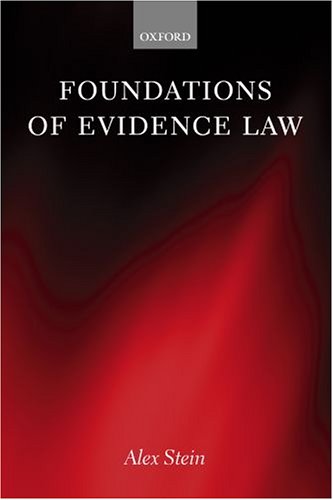
This is the first book to systematically examine the underlying theory of evidence in Anglo-American legal systems and to identify the defining characteristics of adjudicative fact-finding. Stein develops a detailed and innovative theory which sets aside the traditional vision of evidence law as facilitating the discovery of the truth.
Combining probability theory, epistemology, economic analysis, and moral philosophy, he argues instead that the fundamental purpose of evidence law is to apportion the risk of error in conditions of uncertainty. Stein begins by identifying rules and doctrines that are genuinely evidential, in contrast to evidence-related rules and doctrines that promote objectives unrelated to fact-finding.
He then moves on to examine critically the concepts of probability and evidential weight that fact-finders employ. By examining paradoxes of rational belief, Stein identifies the defining characteristics of adjudicative fact-finding, and concludes that the function of evidence law is to apportion the risk of error under uncertainty. This insight sets aside the traditional vision of evidence law as facilitating the discovery of the truth.
The endorsement of the traditional view of evidence law by reformers is responsible for the ongoing abolition of evidentiary rules and the flowering of discretion in adjudicative fact-finding. This development culminated in the UK with the enactment of the Criminal Justice Act 2003. Stein argues that evidence law should develop in exactly the opposite direction: that legal regulation of adjudicative fact-finding should be increased rather than scaled down. He argues for regulation of two types of decisions- the various tradeoffs between the cost of fact-finding errors and the cost of fact-finding procedures that aim to avoid those errors.
The book then moves on to explore economic arguments under which evidential rules and doctrines should be geared towards cost-efficiency, and contrasts these with moral arguments that centre on the apportionment of the risk of fact-finding error in criminal and civil trials. Two fundamental precepts are examined: the equality principle that controls the apportionment of the risk of error in civil litigation; and the equal-best standard that needs to be satisfied in every criminal case in order to convict the accused.
Finally, Stein uses these two precepts to justify and explain the majority of evidential rules and doctrines that have developed in Anglo-American legal systems.